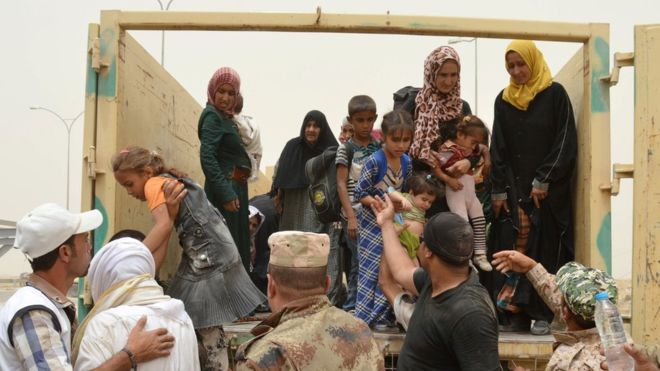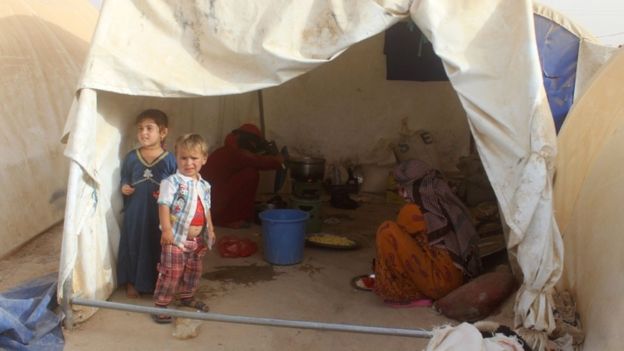IS conflict: Falluja ‘humanitarian disaster’ warning

A humanitarian disaster is unfolding in Falluja following a civilian exodus from the Iraqi city, aid workers warn.
Some 80,000 people have fled during a four-week government offensive to drive back so-called Islamic State fighters, says the UN.
A further 25,000 civilians are likely on the move, the organisation adds.
Aid workers are struggling to provide food, water and medicine to people who are sleeping in the open in hopelessly overcrowded camps outside the city.
"The overwhelming number of people that have come out of Fallujah has actually overwhelmed our ability to respond to the people in need," said Nasr Muflahi from the Norwegian Refugee Council (NRC).
"We implore the Iraqi government to take charge of this humanitarian disaster unfolding on our watch," he added.
Iraqi government forces have succeeded in retaking most of Falluja, but fighting continues in some parts of the city, which is just 50km (30 miles) west of Baghdad.
Many of those who fleeing the fighting have been forced to sleep in the open, and spend their days under the sun in temperatures set to reach 47C (117F) in the next few days.
Aid supplies are running dangerously low in overcrowded conditions. One newly opened camp, Amriyat al-Fallujah, has only one latrine for 1,800 women, the NRC said.
The government of Prime Minister Haider al-Abadi is already struggling to meet the needs of more than 3.4 million people across the country who have been displaced by conflict.
The IS group's self-styled Amaq news agency reported on Sunday that about 50 Iraqi troops had been killed and four army vehicles destroyed in "fierce fighting" with IS fighters near Falluja General Hospital in the north-east of the city.
Several civilians have been killed by militants while attempting to escape, including, on Monday, a two-year-old boy who was being carried by his mother.
Some residents were reportedly used as human shields by IS to slow the advance of government forces, who are being backed by air strikes from the US-led coalition.
IS militants had captured the northern city in January 2014 and held it for longer than any other city in Iraq or Syria — before the Iraqi army launched an operation to retake it.
Политика конфиденциальности | Правила пользования сайтом








